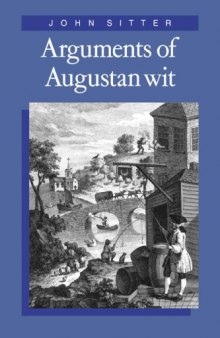 جزییات کتاب
جزییات کتاب
Comic and satiric literature from the 1670s to the 1740s is characterized by the allusive and elusive word play of Augustan wit. The arguments of Augustan wit reveal preoccupations with the metaphorical dimension of language so distrusted by Locke and others who saw it as fundamentally opposed to the rational mode of judgement. John Sitter makes a challenging claim for the importance of wit in the writings of Dryden, Rochester, Prior, Berkeley, Gay, Pope and Swift, as an analytic mode as well as one of stylistic sophistication. He argues that wit - often regarded by modern critics as a quaint category of verbal cleverness - in fact offers to literary theory a legacy corrective of Romantic and neo-Romantic idealizations of imagination. This study aims at once to emphasize the historical specificity of Augustan writing, and to bring its arguments into dialogue with those of our time.



 دانلود کتاب
دانلود کتاب

 جزییات کتاب
جزییات کتاب





 این کتاب رو مطالعه کردید؟ نظر شما چیست؟
این کتاب رو مطالعه کردید؟ نظر شما چیست؟
